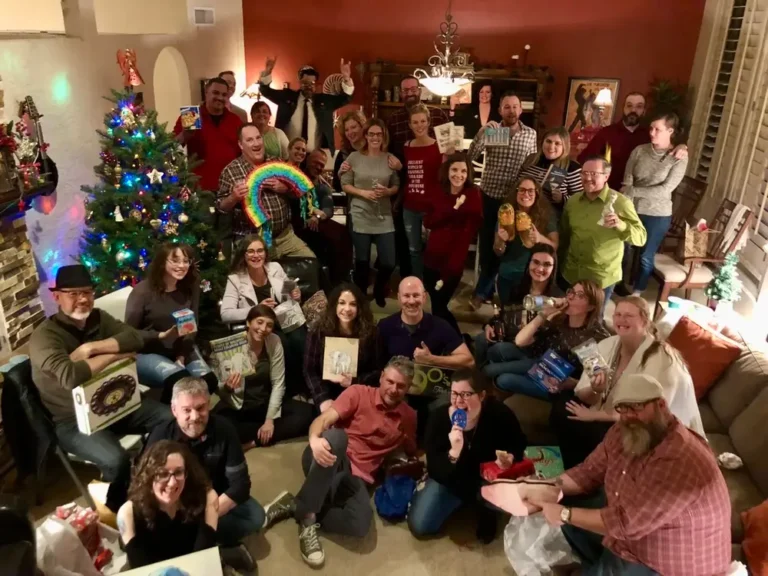I’m a clinical psychologist, and too often, I see clients misdiagnose partners as narcissists. Sometimes, people are just jerks.

Isabelle Morley is the author of the book “They’re Not Gaslighting You.”
Some people suck. They’re immature, mean, selfish, and unremorseful. Some people don’t respect other people in their lives. They lie and they cheat, and they don’t care that it hurts others. But they can be all these things and still not be a narcissist.
There’s a lot of room for people to be awful without meeting the criteria for a personality disorder, and that’s because (you guessed it!) people are flawed. Some people feel justified in behaving badly, while others just don’t know any better yet. Our growth is messy and not linear.
In the process of figuring out how to have healthy relationships, some people have a lot of unhealthy ones, and often through their own fault. We learn from our mistakes, and sometimes, the mistake is that we repeatedly act in immature and egocentric ways. Your ex might be a jerk who has a lot of self-reflection and self-work to do, but it doesn’t mean they have narcissistic personality disorder (NPD).
I’ve made mistakes in relationships, too
I have been a jerk in some relationships. To this day, I deeply regret how I ended a friendship in college. She was a best friend like I’d never had before. We were inseparable, and then she went abroad for a semester, and somehow things changed. I can’t even recall why our relationship felt different, but it did.
She seemed needier in a way that frustrated me, and I handled it terribly. Our group of roommates didn’t include her as much. We acted cool and better than her. The apartment became very awkward. We weren’t friends by the end of college, and I desperately wish I had handled everything better because she’s someone I’d love to have as a friend.
In this situation, I seemed narcissistic. I wasn’t empathic because I was too consumed by my own feelings and justifications. As a result, I threw away a yearslong friendship that could have lasted a lifetime, and I regret it. I’ve thought about it often and grown from it, and I’ve fought for friendships in a way that I would never have had I not gone through that. The point is, I was not a good person in that relationship, but that didn’t mean I had NPD. It just meant I was a jerk.
Those who are worried about being narcissists usually aren’t
Because narcissism has become so weaponized, I’ve had clients fearfully ask me if they have narcissism after being labeled as such by their partner, child, or parent. Some are in tears as they question their ability to interact with others in a healthy manner. Others come with the NPD criteria in hand, ready to review each one to see if they check off five of the nine. The reality is that anyone who genuinely worries that they are a narcissist, probably isn’t.
That level of openness and willingness to self-reflect is not typical of a narcissist. Plus, narcissists don’t tend to believe or care that they’ve hurt others, whereas my clients are deeply distressed by the possibility that they’ve unknowingly caused others pain.
My clients’ concern is fueled by a steady increase in the armchair diagnosis of narcissism. Our expanded awareness of this disorder has created a fascination with it. How many books and shows are written about narcissists? How many articles and reels? As scary and destructive as someone with NPD can be, we’re a little bit obsessed with them, which has led us to see narcissists everywhere we turn.
Maybe it’s self-protective, to educate ourselves so that we don’t fall prey, or maybe it’s because we’re morbidly curious about people who can be so abusive with such little awareness or remorse. While this rising fascination with narcissism has undoubtedly helped some people avoid or escape bad relationships, it has also misled many others to inaccurately see narcissism when it’s not there.
This is one of my bigger concerns since I’ve seen relationships be irreparably damaged or end because the term “narcissism” was weaponized. It’s hard to recover when your spouse tells you (and your couples therapist), “Listen, I’ve figured out why this has been so bad, and it’s because you’re a narcissist. Good news is, we’re in couples therapy now, and I can point out all your narcissistic ways so you can change them.”
As you can imagine, the other person usually feels shocked, angry, or devastated, or a combination of all three. These sessions don’t get any better when I challenge the armchair diagnosis after assessing this alleged narcissist and witnessing their genuine empathy and attempts to work on the relationship over time.
It’s the same when narcissism is volleyed between children and parents; the accusation puts the accused person in an impossible situation. They can either agree that they’re a narcissist and then walk on eggshells for the rest of their relationship to prove that they’re not bad, or they can face the reality that their loved one sees them so negatively that they would accuse them of having a serious personality disorder and also won’t take responsibility for their side of the problems.
I advise avoiding therapy speak when talking about relationships
As with gaslighting, I have rarely seen people accurately diagnose narcissism. To put it bluntly, I have never seen a client in a couples therapy session call their partner a narcissist and be right. In fact, the person misusing the label usually tends to be more narcissistic and have more therapy work to do than their partner. (Remember how abusive partners are masters at weaponizing therapy speak to their advantage.)
More often, I’m the one telling a client my concerns that their partner or parent or friend may have narcissistic traits, which is why they’re finding the relationship so volatile and conflict resolution so one-sided. It’s hard for a person involved with a narcissist to accurately identify the disorder because people with NPD are great at making other people think they are the problem. It’s an insidious process, and rarely do people realize what’s happening until others point it out to them or the narcissist harshly devalues or leaves them.
Now, you might be in a relationship with someone who has NPD, but instead of jumping to “narcissist!” it’s helpful to use other adjectives and be more specific about your concerns. Saying that a certain behavior was selfish or that a person seems unremorseful is more exact than calling them a narcissist.
After all, from those nine criteria, we know NPD has many problematic characteristics; someone who annoyingly seeks validation or admiration is very different from someone who unashamedly exploits others. By pushing ourselves to be clearer and more targeted in our analyses instead of using the loaded word, we will more accurately navigate hard parts of our relationships or identify if we need to leave them.





